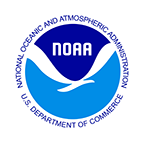Michigan History Museum System

Thunder Bay National Marine Sanctuary is co-managed with the state of Michigan. The sanctuary visitor center, the Great Lakes Maritime Heritage Center, is part of the Michigan History Museum System. Visit all 12 museums and historic sites around the state. Or swim back in time with their new interactive map and app on Michigan shipwrecks.
Michigan Artifact Collections

Co-managed with the state of Michigan, the sanctuary’s visitor center is part of the Michigan History Center’s system of museums and historic sites. The History Center collects and preserves the artifacts of Michigan’s past and displays the artifacts in their collection at museums and historic sites across the state. But their goal is not just to display the objects that tell Michigan’s story; they also seek to preserve them for future generations.
You can see many of these donated artifacts from Michigan’s maritime past on display at the Great Lakes Maritime Heritage Center in Alpena.
Interested in donating an artifact? Download the artifact donation information form.
Michigan History Center’s Underwater and Salvage Preserve Committee

Michigan's Great Lakes bottomlands are the final resting place of hundreds of shipwrecks—the cold, fresh waters of the lakes preserve these time capsules of our heritage. A national marine sanctuary and 13 state-designated underwater preserves protect and interpret them.
- The Michigan Underwater Salvage and Preserve Committee advises cooperating state agencies on policies and permits concerning shipwrecks on Great Lakes bottomlands.
- The Michigan History Center partners with the National Oceanic and Atmospheric Administration on the management of the Thunder Bay National Marine Sanctuary and Underwater Preserve.
- The Michigan Underwater Preserves Council has details on each preserve.
- The Michigan Department of Environment, Great Lakes and Energy(EGLE) provides information on Michigan law and permits affecting underwater resources.
Michigan Archaeology

Along with NOAA’s Thunder Bay National Marine Sanctuary and the Michigan History Center, a variety of state agencies partner in the stewardship of Michigan's submerged archaeological heritage. The state archaeologists with Michigan’s State Historic Preservation Office (SHPO) and Department of Natural Resources (DNR) determine the archaeological research potential, historical significance and interpretation of artifacts found on Great Lakes bottomlands. The Department of Environment, Great Lakes, and Energy (EGLE) is responsible for the recognition of recreational opportunities, and the DNR is responsible for enforcement of safe-boating and anti-theft laws. Together, these agencies oversee one of the strongest underwater preservation programs in the United States.
Frequently Asked Questions about Michigan’s submerged cultural resources (EGLE).

